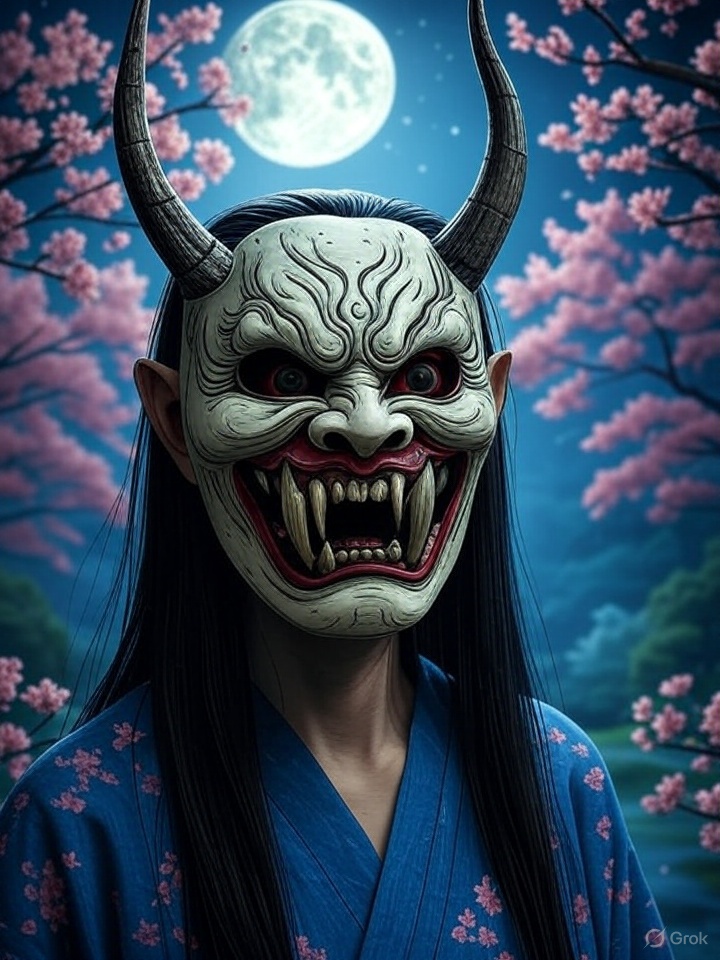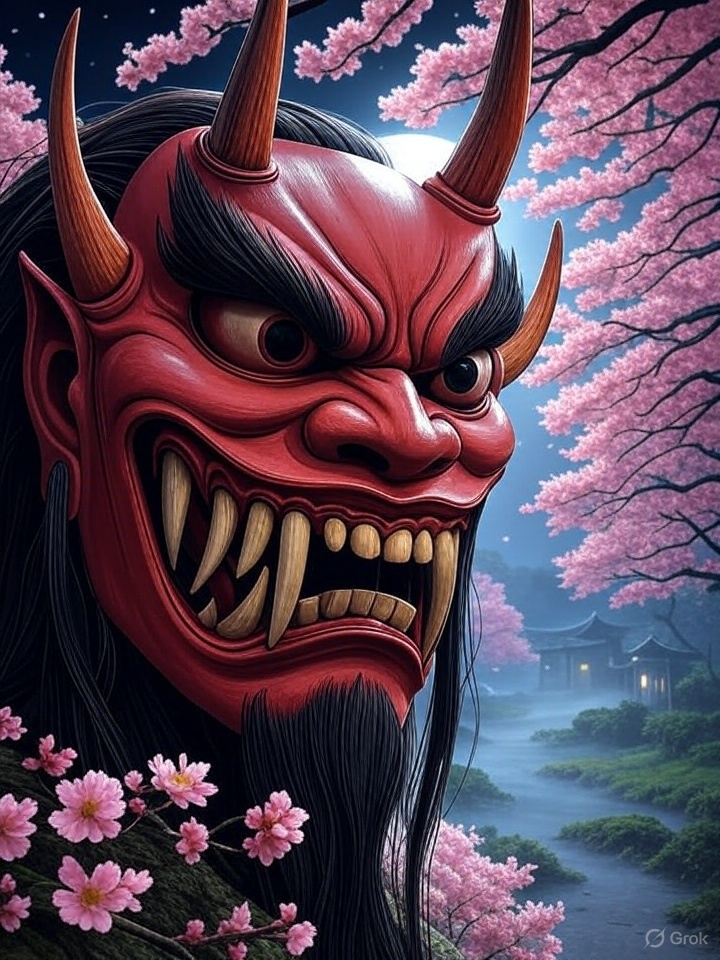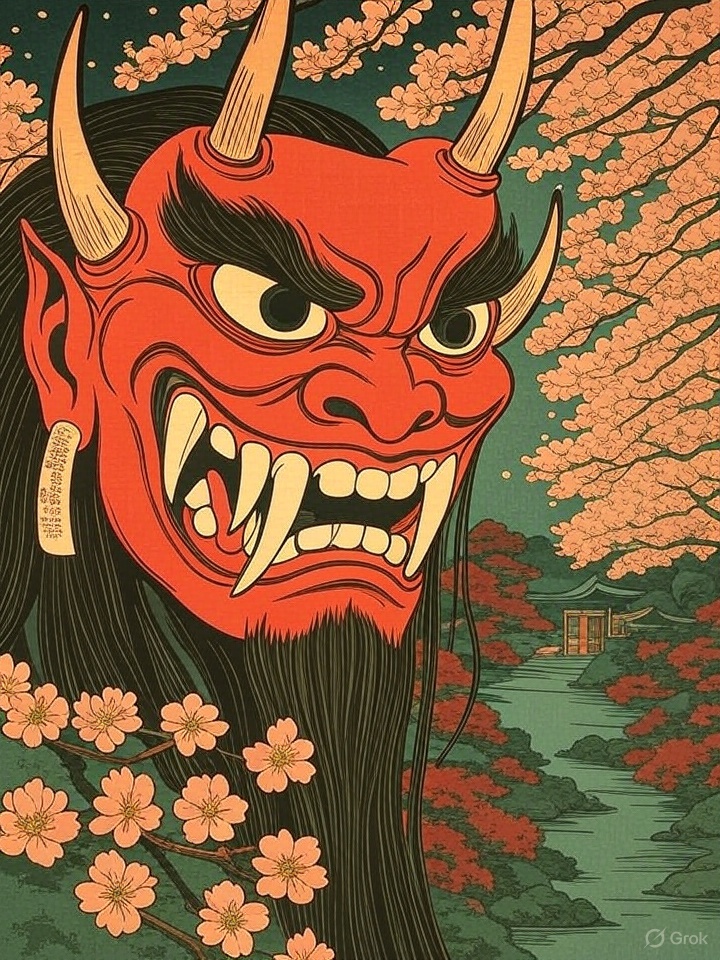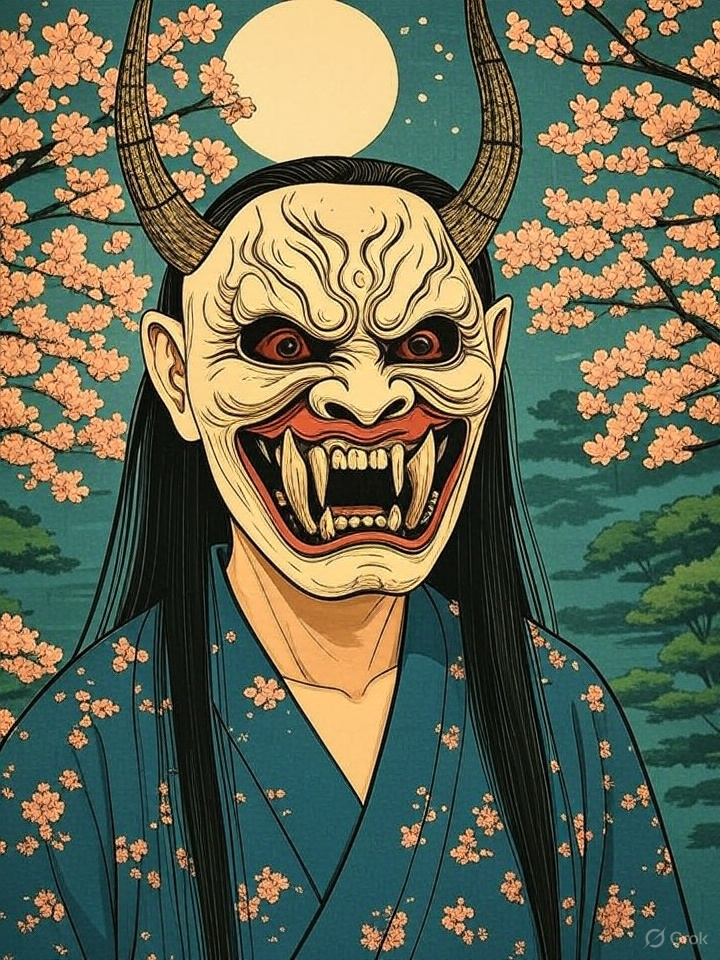Name Meaning
Overview
Hannya (般若) refers to the demonic mask worn in Noh and Kabuki theater. It symbolizes a woman transformed into a demon by overwhelming jealousy and sorrow.
- Hannya = Wisdom in Sanskrit, but here used ironically
- The mask conveys pain, rage, and longing
Origin
- Originates from traditional Noh drama in Japan, used to portray female demons.
- Based on tales of women consumed by love, jealousy, and betrayal.
- Also appears in Buddhist iconography and ghost stories.
Appearance
- White face with sharp, menacing features.
- Horned head, fanged mouth, and deeply expressive eyes.
- Visually evokes terror and deep sadness at once.
Behavior & Myths
- In stories, Hannya represents women turned into vengeful spirits.
- Often haunts or attacks those who wronged them in love.
- Still used symbolically in rituals and performances to reflect strong emotions.
Symbolism
- Represents destructive emotion born of love and betrayal.
- Also a reminder of emotional transformation and suffering.
- Ironically linked to wisdom through its name, showing the duality of pain and understanding.



